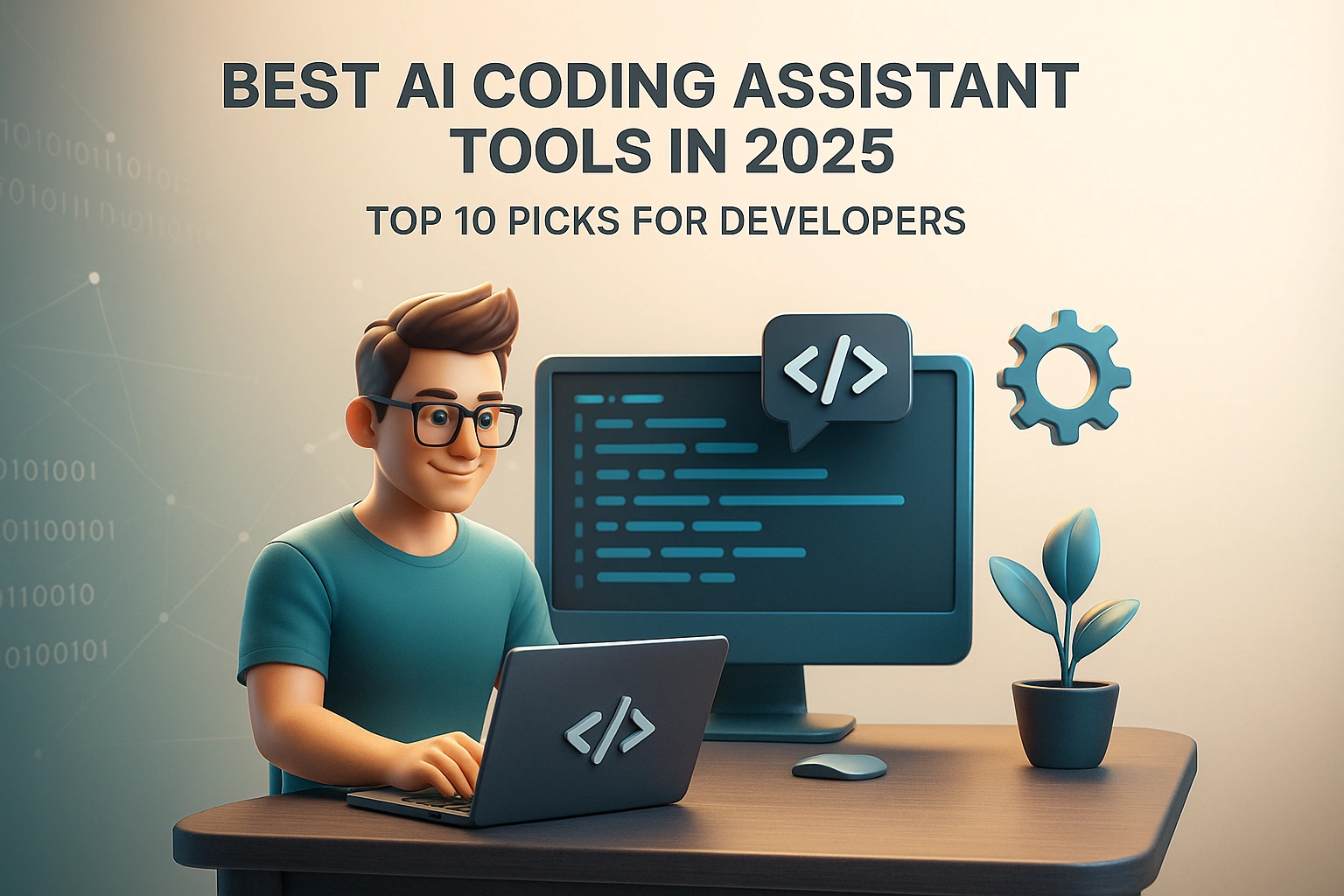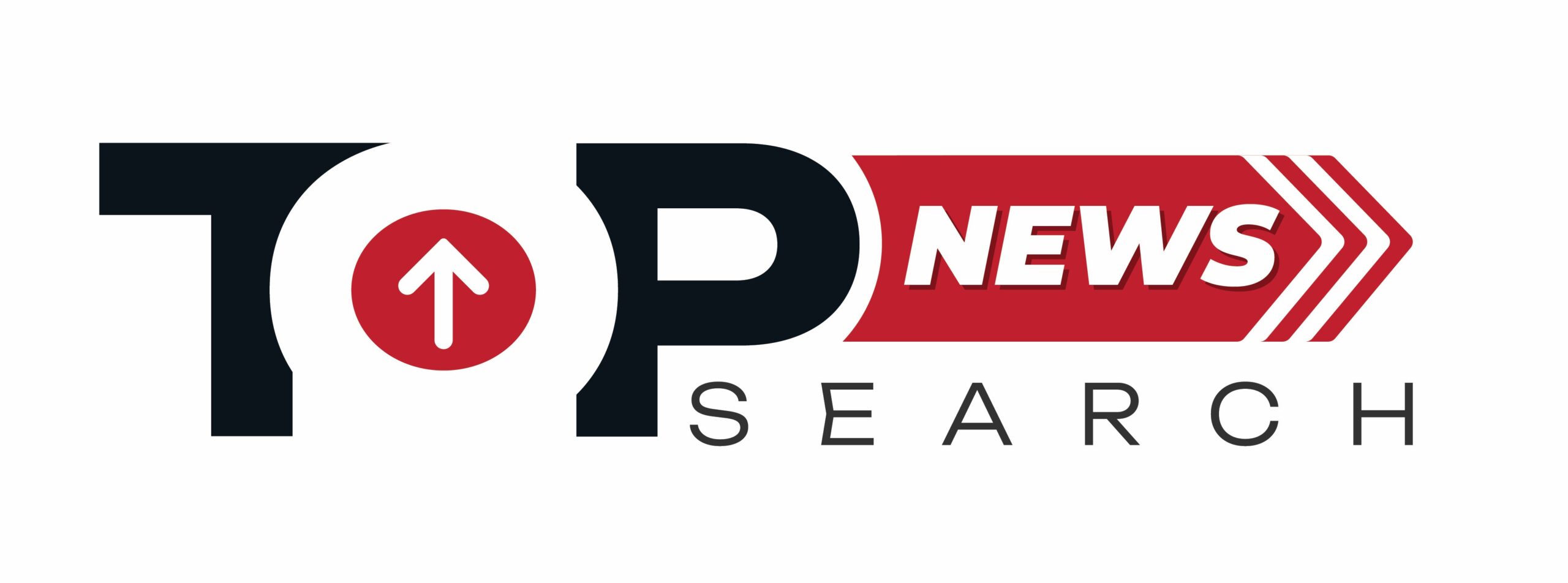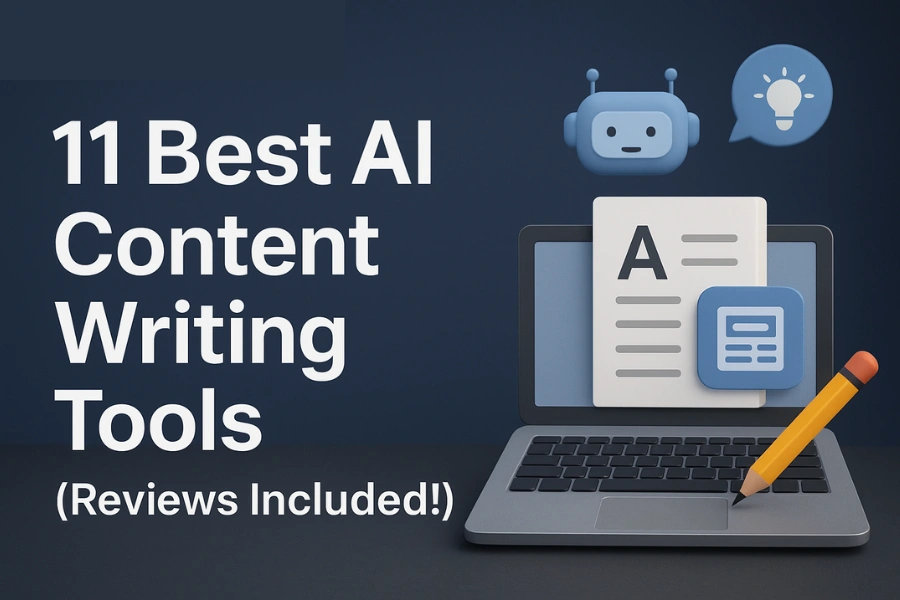
AI in Digital Marketing 2025: Transform Your Strategy Today!
- September 11, 2025
- Top Search
- 9:25 am
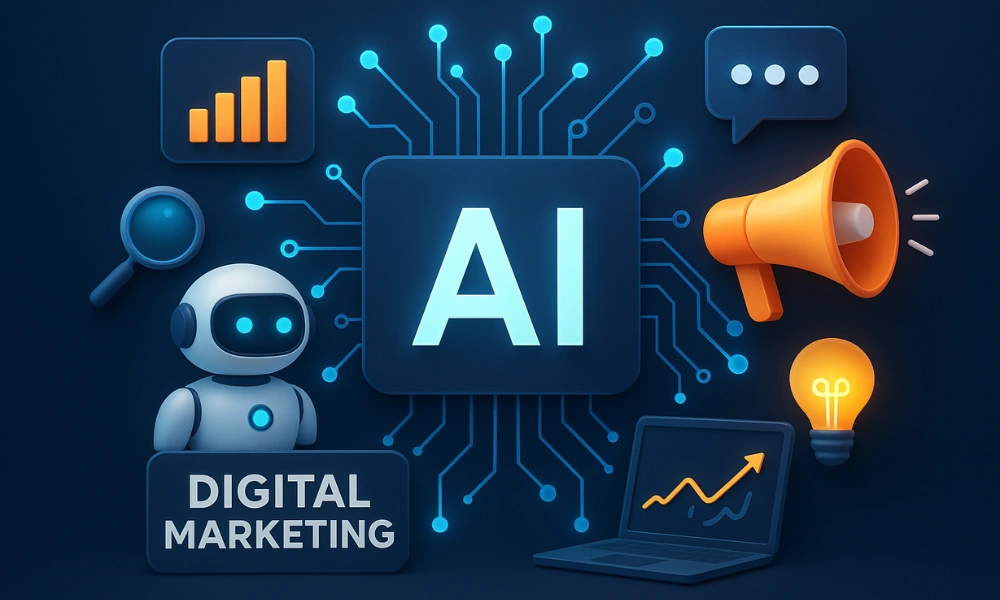
In Short
AI in digital marketing is transforming 2025 strategies with hyper-personalization, automation, predictive insights, and enhanced engagement. Companies that embrace AI marketing tools and AI SEO tools today will lead the future of marketing 2025.
Introduction: Why AI in Digital Marketing is Essential in 2025
AI in digital marketing has become a game-changer for businesses looking to stay ahead. By 2025, AI is no longer optional—it is central to optimizing campaigns, boosting engagement, and improving ROI. AI marketing tools are helping brands automate repetitive tasks, create personalized experiences, and generate actionable insights that drive results.
From AI SEO tools to predictive analytics, the integration of AI in digital marketing defines the future of marketing 2025. Companies ignoring AI risk losing relevance in an increasingly competitive and fast-paced digital landscape.
What is AI in Digital Marketing?
AI in digital marketing uses technologies like machine learning (ML), natural language processing (NLP), computer vision, and predictive analytics to enhance marketing efficiency. Unlike traditional strategies, AI learns from data patterns to automate workflows, personalize experiences, and forecast outcomes.
Key Components:
Machine Learning (ML): Enables AI marketing tools to improve campaigns by learning from data.
Natural Language Processing (NLP): Powers chatbots and AI content tools for human-like interactions.
Predictive Analytics: Anticipates customer behavior and campaign performance.
Computer Vision: Analyzes images and videos for more engaging campaigns.
Benefits of AI in Digital Marketing
AI marketing tools provide multiple advantages for modern marketers:
1. Hyper-Personalization
AI in digital marketing allows brands to deliver personalized experiences at scale. AI analyzes browsing history, purchase patterns, and engagement to tailor content, emails, and recommendations. Netflix and Spotify are classic examples of AI marketing tools delivering personalized experiences that retain users.
2. Automation
AI marketing tools automate social media posting, email campaigns, and ad bidding, freeing marketers to focus on strategy. HubSpot and Marketo leverage AI to streamline workflows, ensuring campaigns are efficient and results-driven.
3. Predictive Analytics
AI SEO tools and marketing platforms predict future trends, helping brands target the right audience with precision. E-commerce giants like Amazon use AI to recommend products based on past behavior, improving conversion rates.
4. Improved ROI
AI in digital marketing reduces wasted ad spend by targeting the right audience at the right time. Platforms like Google Ads now integrate AI marketing tools to automatically optimize campaigns for maximum results.
5. Enhanced Customer Engagement
AI-powered chatbots and recommendation engines improve engagement and retention. Customers get instant support, guidance, and product suggestions 24/7, enhancing their overall experience.
Top AI Applications in Digital Marketing
1. Chatbots & Virtual Assistants
AI marketing tools like chatbots provide instant customer support, answer questions, and assist with purchases. Brands like Sephora and H&M use AI in digital marketing to reduce response times and increase engagement.
2. AI SEO Tools
AI SEO tools analyze search intent, optimize content, and improve website rankings. Platforms like SEMrush, Surfer SEO, and Clearscope help marketers leverage AI in digital marketing for better visibility and traffic.
3. AI Content Creation
AI marketing tools like ChatGPT, Jasper, and Writesonic generate high-quality content for blogs, social media, and ads. This accelerates content production while maintaining consistency across campaigns.
4 .Predictive Analytics & Customer Insights
AI in digital marketing provides insights into buying patterns and audience segmentation. Predictive analytics tools enable marketers to anticipate needs and optimize campaigns effectively.
5. Visual & Voice Recognition
AI SEO tools and marketing platforms are incorporating visual and voice search capabilities. Pinterest Lens allows image-based product searches, while voice search optimization ensures brands are discoverable via Alexa or Siri.
Challenges & Ethical Considerations
While AI in digital marketing offers tremendous benefits, there are challenges:
Data Privacy: Personalization requires user data, so compliance with GDPR and other regulations is critical.
Algorithmic Bias: AI marketing tools can inadvertently reinforce biases if trained on unbalanced datasets.
Cost: Advanced AI marketing tools may be expensive for small businesses.
Creativity vs. Automation: Human storytelling and creativity remain essential despite AI content capabilities.
The Future of Marketing 2025
The future of marketing 2025 is AI-driven:
Voice & Visual Search Dominance: AI SEO tools will optimize for voice commands and image-based searches.
AI-Powered Video Marketing: Personalized videos will engage users more effectively.
Immersive Experiences: AI combined with AR/VR will enable interactive campaigns.
Enhanced Predictive Marketing: AI will anticipate trends and customer needs with higher accuracy.
Brands adopting AI in digital marketing now will enjoy a competitive edge, higher engagement, and better ROI.
FAQs
AI is applied in personalization, chatbots, content creation, AI SEO tools, predictive analytics, and marketing automation.
Popular tools include ChatGPT, Jasper, HubSpot AI, SEMrush, Surfer SEO, and Drift chatbots.
No. AI automates repetitive tasks, but human creativity, strategy, and emotional intelligence are irreplaceable.
Many affordable AI marketing tools exist, making AI accessible and cost-effective.
Expect hyper-personalized campaigns, AI SEO tools, immersive AR/VR experiences, AI-generated content, and predictive insights driving results.

Recent Posts:

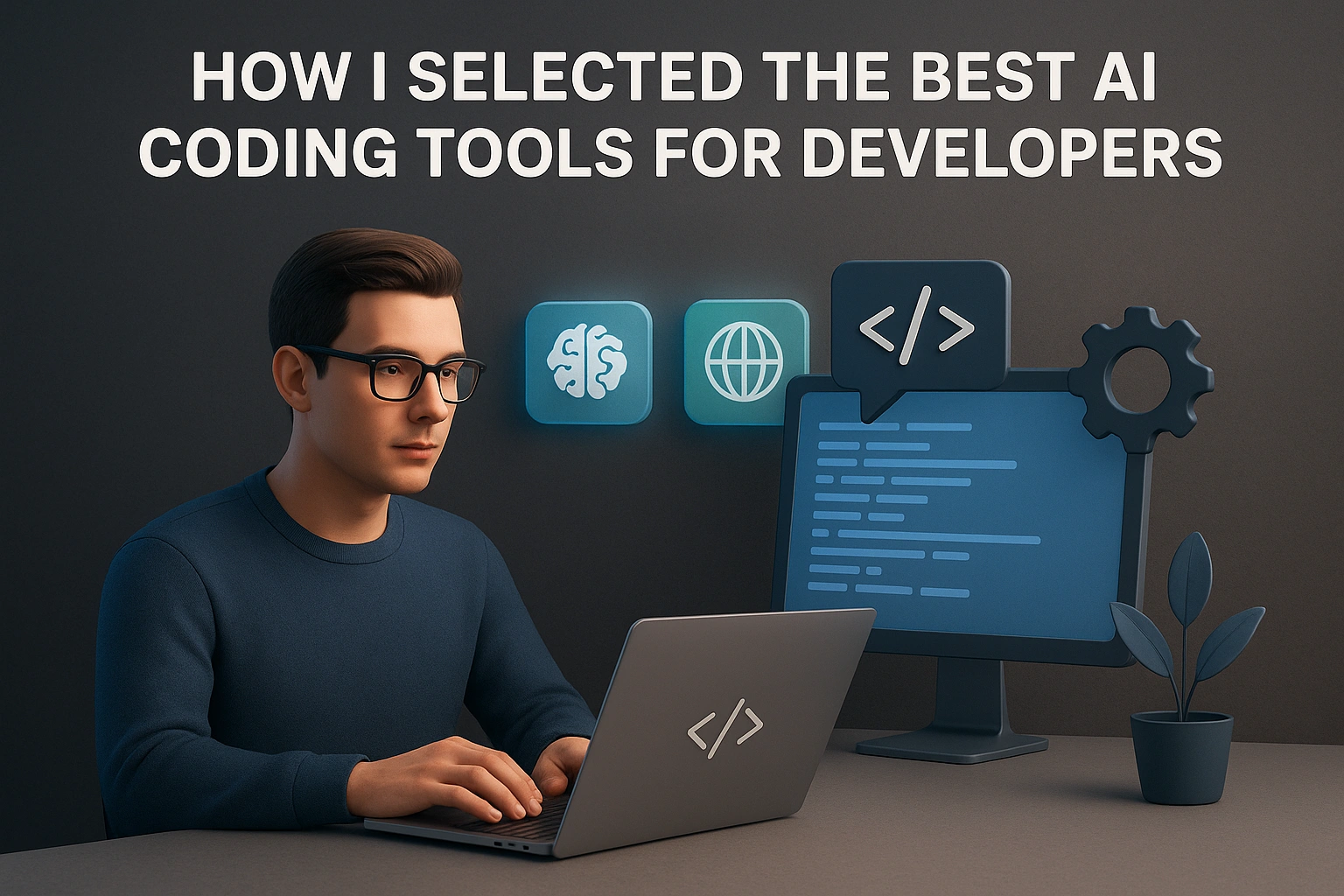
How I Selected the Best AI Coding Tools for Developers
